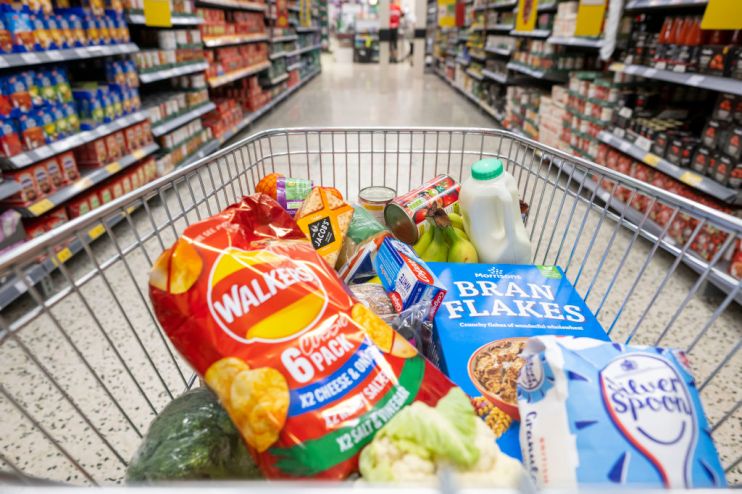Ultra-high food prices here to stay as Russia exits Black Sea grain deal with Ukraine

Soaring food costs may not fall as quickly as markets had hoped, retail and pub industries have warned, as Russia’s decision to withdraw from the Black Sea grain deal places fresh pressure on struggling businesses and consumers across Britain.
“Russia withdrawing from the Black Sea grain deal will likely put renewed pressure on global corn, wheat and fertiliser prices,” Harvir Dhillon, economist at the British Retail Consortium (BRC), told City A.M.
He said: “As a result, food inflation on some products, such as meat, dairy and cereals, might not fall as quickly over the coming months as consumers and retailers had hoped.
“This additional cost pressure will come at a difficult time for retailers, who are already battling other headwinds. Nonetheless, they will continue to work hard to keep prices as low as possible for their customers.”
Over the past few weeks, there have been talks of food prices being lowered, with figures from the BRC’s grocery price inflation measure falling to 14.6 per cent in June, down from 15.4 per cent in May.
However, Russia has exited a UN-led deal which enabled the safe export of grain from Ukraine through the Black Sea over the past year.
Nearly 33m metric tons of corn, wheat and other grains have been exported by Ukraine under the arrangement – helping to alleviate a global food crisis as the invaded country is considered ‘the breadbasket of Europe’.
Whilst the Kremlin cited concerns over supplies not reaching poorer countries under the deal, EU Commission president Ursula von der Leyen derided Russia’s decision as a “cynical move.”
Both Russia and Ukraine are among the world’s top grain exporters, and Russia’s ongoing invasion of Ukraine has played a key role in rising food prices for UK consumers, triggering a global economic shock and squeezing supply.
The end of the export agreement has also sparked fears amongst the UK’s hospitality sector, which is battling high energy prices.
“Ukrainian grain is essential for many parts of the world, particularly North Africa, the Middle East and southern Europe, and the end of this deal could have serious implications for global food prices. As we saw last year, this volatility in the supply chain can hit prices hospitality businesses face in the UK,” Kate Nicholls, chief of UK Hospitality, told City A.M.
“With food input inflation remaining above 20 per cent, as it has done for months, any further increases in food prices would compound the pressures hospitality businesses are facing. We’ll continue to monitor the situation and work with stakeholders across the food supply chain, should we see a sharp increase in price.”
Domestic wheat prices have so far remained stable following the latest setback for grain supplies.
James Walton, chief economist at market insights specialist IGD argued that the UK is less exposed to the crisis due to its robust domestic production and steady trade with Europe and North America.
As for immediate headwinds, he pointed to the the current heatwave in Europe as a major factor that could hamper production across much of the continent.
He said: “The UK is unlikely to escape the impact entirely since food supplies will naturally flow to wherever prices are highest (subject to transport). IGD forecasts that food price inflation will slow gradually over 2023 and into 2024, but price levels are not expected to fall significantly for the foreseeable future.”